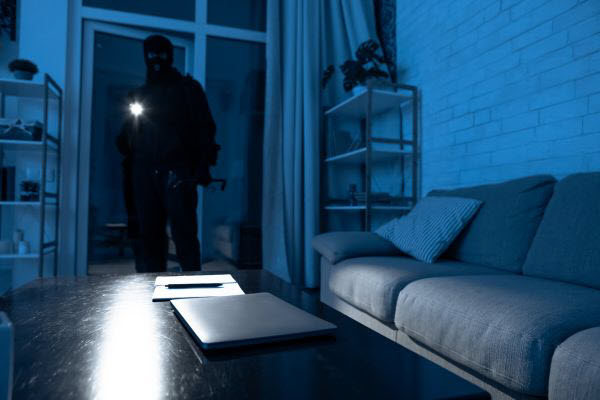By Tricia Meaud, PHEc
With holidays approaching, family vacations and gatherings out of town may mean leaving the house empty for several days. While it’s natural to wonder if your house will be secure while you’re gone, there are some things you can do to reduce the worry.

Most importantly, ensuring your home looks protected, well-maintained, and occupied can keep it from being a target for crime. Here are some tips to help reduce the chance of property damage and loss:
- Close and lock every door and window, including your garage, shed, and basement. Use a long metal rod or piece of wood in the track of your sliding door to prevent it being pushed open. Put cash, jewelry, important papers, and valuables in a safety deposit box.
- Ensure a trusted friend or neighbour has a key for emergency access and/or to check your home. Do not label the key with your address. Before you leave, remove any spare keys from their hiding spots.
- If you have an alarm, use it. Make sure your “trusted friend” has a code and knows how to operate and arm your system. Don’t forget to give your alarm company their name and contact number, in case you are unreachable.
- Set timers for lights inside and outside your home. Or, use a “smart home” app with connected bulbs/plugs to control lights from afar. Leave some blinds or drapes open to let out light and appear normal—most people don’t have all of their blinds closed 24/7. Consider playing music through an app and connected speakers, as well.
- Have your mail and newspapers picked up or put on hold; tape a “no flyers” sign to your mailbox. Arrange for grass-cutting and someone to water your plants while you’re gone. Nothing says “vacant house” like a full mailbox, an overgrown lawn, or neglected plants.
- For longer trips, or if extreme weather is in the forecast, consider a house sitter or have someone check on your home regularly, this may also be a requirement of your insurance policy.
Remember, your vacation should be a relaxing time for the whole family. As long as you take the necessary precautions, there’s no reason why you should spend time worrying about the safety of your home.
Tricia is a Professional Home Economist in Manitoba. Her educational background is in Consumer Studies and she has worked in a variety of roles in both government and the not-for-profit sector in Manitoba and Alberta. She has also served as a mentor and on the board of both MAHE and AHEA.






